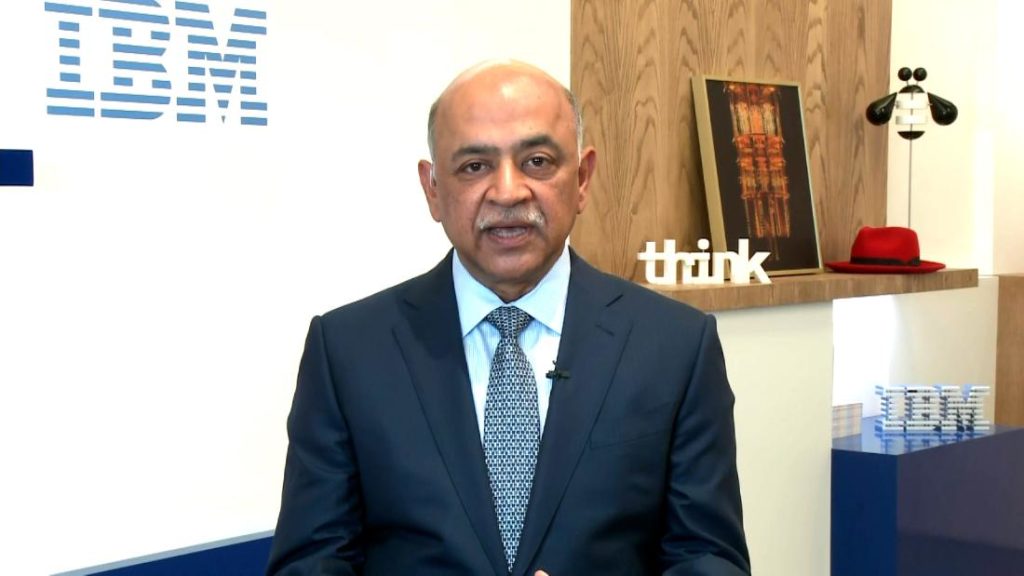First Move’s Julia Chatterley spoke to Krishna Tuesday.
You suggested a NASA-style government investment is required in order to be able to tackle cybersecurity.
Are businesses spending enough? Are they talking about this enough?
Krishna: It’s a mixed reaction. Why are there so many cyber attacks? That’s kind of where the money is. That’s where the value lies, in the value from the cyber infrastructure that a criminal or thief can take up. So if you look at it, I would tell you that financial institutions, insurance companies, telecom companies have stepped up their game. They are understanding what to do. Each one is doing their own. That’s why I believe a collective effort led by government would lead to a better answer. That said we see attacks that happen. We know that the answer is not universal even though some industries have stepped up, not every industry has. We need to do that. I mean, think about autonomous vehicles, drones, automated homes, think about remote health care. You really need to make sure that we are well protected against those the same way as we spend on military and police functions across the developed world.
IBM has been providing tools and oxygen to India. Can you tell us what IBM has been doing to support the nation.
Krishna: When you think about India — and it’s been obvious over the last four weeks as the crisis has been increasing — we decided to step forward with our resources, with our voice. We helped convene the global task force for pandemic response. Under the auspices of the Business Roundtable and the American Chamber of Commerce, we got together with 40 of our peers and we wanted to do a combined coordinated action. How do we use our collective voice with the government in the United States? How do we use coordination with the government of India but also provide money, provide resources, provide goods? What are the goods? Right now there’s a shortage of ventilators, of oxygen concentrators and also share best practices about what we’re going to do for all our employees. So convening all of this is what we are doing. This is going to take a long and protracted effort. I’ve held the view that stalling the pandemic in India and other places is a marathon.
What specifically are you doing to protect and support your employees in India? What are you hearing from them?
Krishna: They are worried about the pandemic sweeping through them, their families and extended families. What are we doing? We dramatically enhanced their insurance so that none of them feel that they cannot take of themselves and their loved ones. Two, we are attempting to — this is going to depend upon vaccine supply — get vaccination centers in our office building so they can get access to it. Provide a great deal of telehealth locally. Can they get medical advice from other places? We have funded taking oxygen concentrators into the country and Ive been so amazed and pleased. Our people, those who have access to local resources, have stepped up to help each other in the cities. Somebody needs an oxygen cylinder, somebody else knows how to get them, they get them to them. These are local markets that have sprung up amongst our employees that help not just them but some of their friends and colleagues are in other places. Doing this while maintaining business continuity is incredible to watch. I’m so proud of the employees and leaders there.
Talk to me about what clients are saying to you and what you think is going to be crucial in terms of AI investment going forward and how pivotal it could be as we transition out of the pandemic and normalize in some form the workplace.
Krishna: I think when you look at the last 15 months, everybody shifted to: “How do i take care of my workforce going remote? How do I do all of the collaboration tools necessary to go there? How do I make sure I have resilience in my cyber infrastructure?” That occupied them for the last 15 months. Consequently the AI didn’t decrease, it stayed stable. About 31% of companies are adopting AI well, and that kind of paused. Going forward, we see 31% accelerating to 47% but I think everybody is going to adopt AI. Why? How do you do better customer service for your end customers? How do you make your employees more productive? How do you automate operations all inside of the enterprise. All of these are use cases for AI to unlock it. The same way electricity happened at the turn of the last century and everybody went to electrification. i think everybody will be going to AI in this century.
You may also like
-
Afghanistan: Civilian casualties hit record high amid US withdrawal, UN says
-
How Taiwan is trying to defend against a cyber ‘World War III’
-
Pandemic travel news this week: Quarantine escapes and airplane disguises
-
Why would anyone trust Brexit Britain again?
-
Black fungus: A second crisis is killing survivors of India’s worst Covid wave

